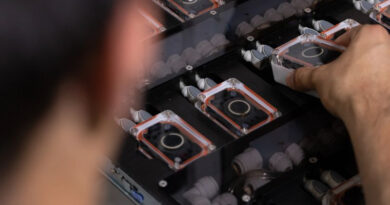Cancer DNA-Detecting Bacteria Invented
Scientists at the University of California San Diego and their colleagues in Australia have created bacteria that can detect the presence of tumor DNA in a living organism.
It is known that tumor cells secrete their DNA into the surrounding intercellular environment. The researchers created the bacteria using CRISPR technology to detect free-floating DNA sequences and compare those samples to predetermined cancer sequences.
The researchers used Acinetobacter baylyi bacteria, which lives in the large intestine, and modified them to become susceptible to mutations in the KRAS gene associated with various types of cancer.
Upon contact with mutant DNA, these bacteria become resistant to antibiotics, making it easy to identify their presence.
Testing in mice showed that the modified bacteria successfully detected tumor DNA by forming green colonies on antibiotic dishes.
Scientists believe that this method can be adapted for use in humans and will help in the diagnosis of not only cancer, but also other diseases.




